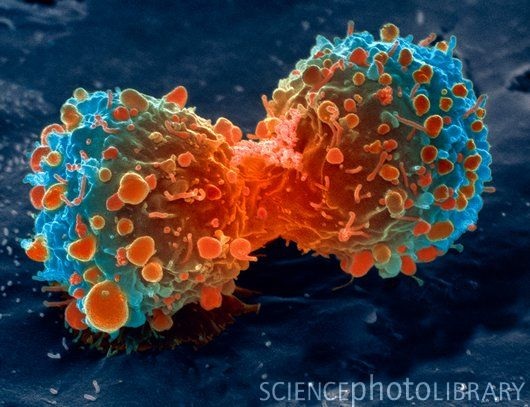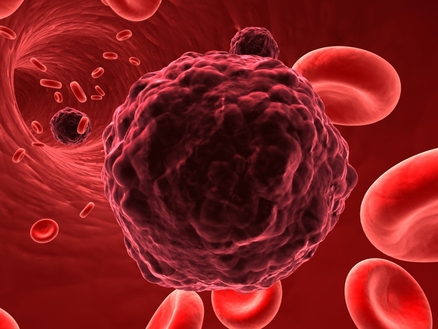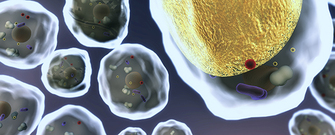| When cancer starts to spread to other parts of the body this a process called metastasis. It becomes much more difficult to treat. New research, published in the journal Cell Reports and led by the University of Sydney in Australia identifies "bad" cholesterol helps in metastasis of cancer. Cancer happens when normal cells grow out of control and multiply to form lumps called tumors. If untreated, cancer cells can escape their primary tumors, travel to other parts of the body and grow into secondary cancers or metastases(note: Metastasis & metastases both are different). Metastases are the major cause of death from cancer. |
To find cure of cancer, we need to understand metastasis which can significantly improve cancer treatment. Researchers are now investigating, what helps cancer cells escape primary tumors and set up new sites elsewhere in the body. The new study revealed how a lipid-converting enzyme called DGK-Alpha helps cancer cells gain traction and mobilize. All the cells in the body stick to each other because they have Velcro-like molecules on their surfaces called Integrins. In recent years, researchers have discovered that integrins help cancer cells to escape tumors and settle elsewhere in the body. So if we block integrins to stop cancer cells from moving and spreading then treating cancer will become more easier. Some inhibitors of integrin have been developed, but they are not suitable for clinical use, say the researchers behind this new study.
'Bad' cholesterol helps integrins move, 'good' cholesterol keeps them inside cells
Researchers have discovered that integrins can move from the surface of cells to the inside, and that cholesterol, one of the major lipids in the body, is needed to keep integrins on the surface of cancer cells. But the underlying mechanisms, until now is still under-research.
Researchers have discovered that integrins can move from the surface of cells to the inside, and that cholesterol, one of the major lipids in the body, is needed to keep integrins on the surface of cancer cells. But the underlying mechanisms, until now is still under-research.
The high levels of "bad" cholesterol seem to help the integrins in cancer cells to move around, and in contrast, high levels of 'good' (high density lipoprotein or HDL) cholesterol seem to keep the integrins inside cells. So, fine-tuning of cholesterol levels could be a way to influence cancer cell migration and invasion.
By manipulate and lower 'bad' cholesterol could significantly help to reduce the ability of cancer cells to spread.
By manipulate and lower 'bad' cholesterol could significantly help to reduce the ability of cancer cells to spread.



 RSS Feed
RSS Feed

